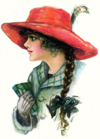 Poetry at Troynovant:
Poetry at Troynovant:
cadences of poets, poems,
& poetic inspiration;
listed by Title
I am the ancient Apple-Queen,
As once I was so am I now.
For evermore a hope unseen,
Betwixt the blossom and the bough.Ah, where's the river's hidden Gold!
And where the windy grave of Troy?
Yet come I as I came of old,
From out the heart of Summer's joy.William Morris
"Pomona" (1891)
| Best of Rilke, The (translated by Walter Arndt) |
Rainer Maria Rilke | RW Franson |
| Emergency Reading or, Never Without a Book |
RW Franson | |
| Faust A Tragedy (translated by Walter Arndt) |
Johann Wolfgang von Goethe | RW Franson |
| Freddy and the Ignormus | Walter R. Brooks | RW Franson |
| Green Hills of Earth, The | Robert A. Heinlein | RW Franson |
| Gunga Din [film] | Kipling / Stevens | RW Franson |
| Horatius at Khazad-dum | WH Stoddard | |
| Mirror of Myth, The Classical Themes & Variations |
Jasper Griffin | RW Franson |
| Move the Stones of Rome to Rise Hearing Mark Antony |
RW Franson | |
| Norton Shakespeare, The | William Shakespeare | RW Franson |
| On Blake's 'The Tyger' | A Karra | |
| Queen of Dances Waltz observations by master writers [compilation] |
||
| Romeo and Juliet | William Shakespeare | RW Franson |
| Rubaiyat of Omar Khayyam | Edward FitzGerald | RW Franson |
| Songs of Love and Grief (translated by Walter Arndt) |
Heinrich Heine | RW Franson |
| Speaking through Texts manifest culture; & action this day [compilation] |
||
| Will in the World How Shakespeare Became Shakespeare |
Stephen Greenblatt | RW Franson |
| Wireless | Rudyard Kipling | RW Franson |
[Forest of Ardenne.]
Touchstone:
When a man's verses cannot be understood, nor a man's good wit seconded with the forward child, understanding, it strikes a man more dead than a great reckoning in a little room. Truly, I would the gods had made thee poetical.
Audrey:
I do not know what 'poetical' is. Is it honest in deed and word? Is it a true thing?
Touchstone:
No, truly; for the truest poetry is the most feigning, and lovers are given to poetry; and what they swear in poetry it may be said, as lovers, they do feign.
Audrey:
Do you wish, then, that the gods had made me poetical?
Touchstone:
I do, truly; for thou swearest to me thou art honest. Now if thou wert a poet, I might have some hope thou did feign.
William Shakespeare
As You Like It, 3.3.9-22
"Meters are the cattle of the gods," we read in the Satapatha Brahmana. ... When we think of meters, we may perhaps glimpse the vague outline of a rhythm, but not much more. ...
The "meters" are the robes that the gods "wrapped around themselves" so that they might come near to the fire without being disfigured ... Thus the gods sought to escape death. And likewise men — for men always tell themselves: "I must do as the gods did."
Mind alone, word alone, are impotent — or at least not powerful enough to take an offering to the gods. The horse of the mind must submit to the harness of the word, of the meters; otherwise it would lose its way. ... Meter is the yoke of the word.
If the gods reached the heavens through a form, how much more will men have need of form if they are to reach the gods. And only the meters will allow men to become creatures who, though mortal, know how to use the forms the gods used. ...
Now we begin to see why literature is so often connected to immortality, and in a sense far more radical than the ... rather modest achievement of being remembered by future generations.
Roberto Calasso
Literature and the Gods (2001)
Jennifer M. Franson's site for
Medieval and Renaissance
Verse Forms:
rhyme schemes, notes, and examples
Petrarchan Sonnet
Shakespearean Sonnet
Spenserian Sonnet
Ballade: 8-line stanza
Ballade: 7-line stanza
Ballade: 10-line stanza
Rondeau
Chaucerian Roundel
Sestina
Villanelle
Triolet
Strambotto
Rispetto
William Shakespeare at Troynovant
Charles L. Weatherford's Poetry Base
provides information to assist
in developing new poets
LitCrit at Troynovant
critiques in and around literary criticism
Waves diminish,
still water tepid:
profundity sank long ago.
— RWF
Some ministers found the craze for Omar Khayyam, which swept England and America in the 1870s and lasted well into the 1920s, far more dangerous [than pantheistic mysticism]. Though some erroneously read Khayyam's poems in a Sufi spirit, most recognized them as expressions of a philosophical hedonism and agnostic or even atheological bent of mind; the fact that churchgoing folk were forming clubs and societies around the reading and appreciation of Khayyam's poetry spurred the clergy to action.
Whatever the dangers of alien and non-Christian modes of spirituality may have been, at least, as spiritual modes, they shared the assumption of God, which an increasing number of Westerners, as a result of higher criticism or secular philosophies, alarmingly did not. If Persian poetry appealed to Western audiences, as it clearly did, why not replace the epicurean and despairing Khayyam with Rumi, for whom the universe was theosemic, everything a sign pointing toward God?
Franklin D. Lewis
Rumi:
Past and Present, East and West;
The Life, Teaching, and Poetry
of Jalal Al-Din Rumi (2000)
| Troynovant, or Renewing Troy: | New | Contents | |
| recurrent inspiration | Recent Updates | |
|
www.Troynovant.com |
||
|
Reviews Essays by Title:
A-B
C-F
G-L
M-R
S-Z
If you do not see the Troynovant banner at the top, |
||
| Personae | Strata | Topography |
|
|